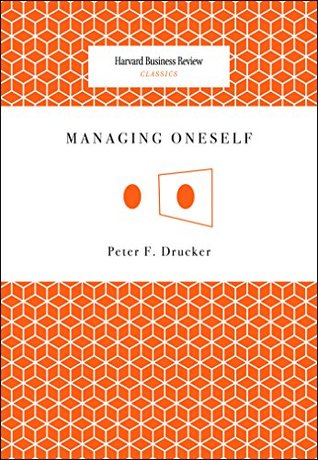More on this book
Community
Kindle Notes & Highlights
First and foremost, concentrate on your strengths. Put yourself where your strengths can produce results.
Second, work on improving your strengths. Analysis will rapidly show where you need to improve skills or acquire new ones. It will also show the gaps in your knowledge—and those can usually be filled.
At the same time, feedback will also reveal when the problem is a lack of manners. Manners are the lubricating oil of an organization. It is a law of nature that two moving bodies in contact with each other create friction.
And yet most people—especially most teachers and most organizations—concentrate on making incompetent performers into mediocre ones. Energy, resources, and time should go instead to making a competent person into a star performer.
Some people learn by doing. Others learn by hearing themselves talk.
Am I a reader or a listener? and How do I learn? are the first questions to ask. But they are by no means the only ones. To manage yourself effectively, you also have to ask, Do I work well with people, or am I a loner? And if you do work well with people, you then must ask, In what relationship?
Another crucial question is, Do I produce results as a decision maker or as an adviser? A great many people perform best as advisers but cannot take the burden and pressure of making the decision. A good many other people, by contrast, need an adviser to force themselves to think; then they can make decisions and act on them with speed, self-confidence, and courage.
include, Do I perform well under stress, or do I need a highly structured and predictable environment? Do I work best in a big organization or a small one?
The conclusion bears repeating: Do not try to change yourself—you are unlikely to succeed. But work hard to improve the way you perform. And try not to take on work you cannot perform or will only perform poorly.
That is the mirror test. Ethics requires that you ask yourself, What kind of person do I want to see in the mirror in the morning? What is ethical behavior in one kind of organization or situation is ethical behavior in another. But ethics is only part of a value system—especially of an organization’s value system.
To work in an organization whose value system is unacceptable or incompatible with one’s own condemns a person both to frustration and to nonperformance.
Whether a business should be run for short-term results or with a focus on the long term is likewise a question of values.
Organizations, like people, have values. To be effective in an organization, a person’s values must be compatible with the organization’s values. They do not need to be the same, but they must be close enough to coexist. Otherwise, the person will not only be frustrated but also will not produce results.
But most people, especially highly gifted people, do not really know where they belong until they are well past their mid-twenties. By that time, however, they should know the answers to the three questions: What
are my strengths? How do I perform? and, What are my values? And then they can and should decide where they belong.
Equally important, knowing the answer to these questions enables a person to say to an opportunity, an offer, or an assignment, “Yes, I will do that. But this is the way I should be doing it. This is the way it should be structured. This is the way the relationships should be. These are the kind of results you should expect from me, and in this time frame, because this is who I am.”
Knowing where one belongs can transform an ordinary person—hardworking and competent but otherwise mediocre—into an outstanding performer.
Knowledge workers in particular have to learn to ask a question that has not been asked before: What should my contribution be? To answer it, they must address three distinct elements: What does the situation require? Given my strengths, my way of performing, and my values, how can I make the greatest contribution to what needs to be done? And finally, What results have to be achieved to make a difference?
Where and how can I achieve results that will make a difference within the next year and a half ?
The first is to accept the fact that other people are as much individuals as you yourself are. They perversely insist on behaving like human beings. This means that they too have their strengths; they too have their ways of getting things done; they too have their values. To be effective, therefore, you have to know the strengths, the performance modes, and the values of your coworkers.
The second part of relationship responsibility is taking responsibility for communication.


